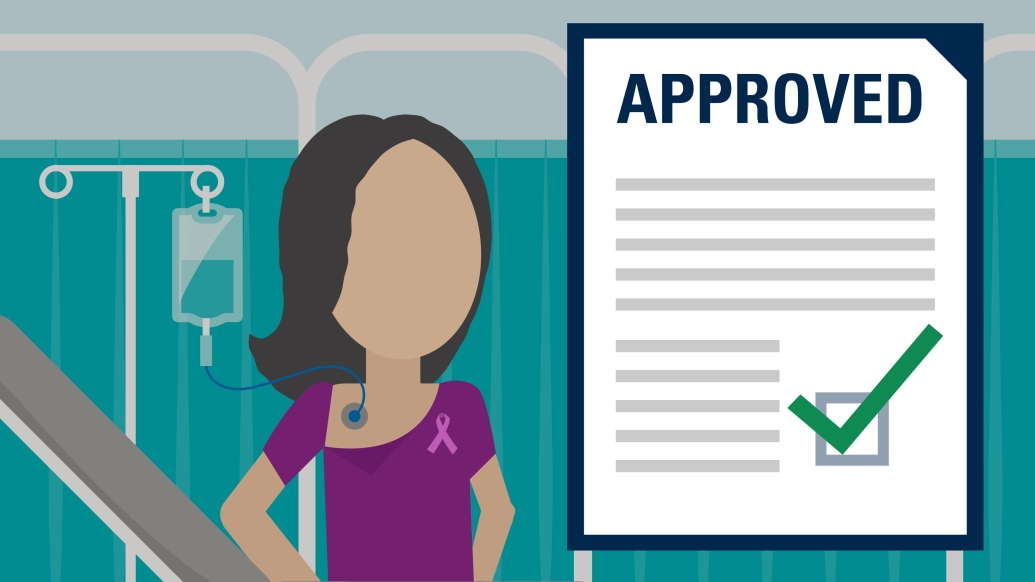As of July 1, 2016, nearly 200 health care providers are participating in the federal Oncology Care Model program. Here’s what it means.
7:00 AM
Author |

Patients often call the Cancer AnswerLine to ask about new government health care programs they hear about on the news, such as the Centers for Medicare and Medicaid Services' Oncology Care Model.
SEE ALSO: Does Dietary Sugar Feed Cancer Growth?
The Oncology Care Model is a new five-year payment and practice reform initiative for cancer patients who use Medicare and receive chemotherapy. With nearly 200 practices participating nationwide, including the University of Michigan Rogel Cancer Center, the program aims to improve patient care and lower costs.
The best part? Cancer patients don't have to do anything to join if they seek treatment at a participating center and meet eligibility requirements. There is no additional cost to take part.
Why use the Oncology Care Model
Under the OCM program, providers who administer chemotherapy to fee-for-service Medicare patients will receive federal reimbursement in two parts: one, through a set per-patient monthly payment, and two, through performance-based reimbursements meant to promote cost-effective care. The OCM encourages information sharing among oncologists, meaning patients should be able to access high-quality, coordinated treatment plans.
In general, we hope OCM's implementation will reduce:
-
The number of emergency room visits
-
Deaths that occur in the intensive care unit
-
Hospital readmissions
-
Chemotherapy given in the last two weeks of life
Tactics of the OCM
The basic goals of the program should be accomplished via:
-
The use of electronic health records, which will allow multiple providers to view a patient chart at the same time (in different locations, too), and will also permit immediate updating of new orders
-
Patient navigators, who will be a consistent point person for each patent throughout their care and will be able to help with coordination of appointments, services, referrals, communication between multiple providers, access to clinical trials, locating support services and screening patients for psychological, emotional or physical distress
-
Treatment that incorporates nationally recognized guidelines, such as those from the National Comprehensive Cancer Network and American Society of Clinical Oncology
-
A written plan of care individualized to the patient that includes their type and stage of cancer, education on chemotherapy treatment and side effects, prognosis, goals of treatment, cost estimates, survivorship planning, responsibilities of the health care team, and psychosocial and financial support resources
-
The ability for patients to contact a health care provider 24/7 who can access their electronic health history and records
-
Performance-based financial incentives for practices that meet the criteria Medicare sets
-
Collecting and reporting of patient data to Medicare to assess how the program is working and which improvements can and should be made
Patients and families with questions about the Oncology Care Model can call the Cancer Center Business Services at 734-615-0396.

Explore a variety of healthcare news & stories by visiting the Health Lab home page for more articles.

Department of Communication at Michigan Medicine
Want top health & research news weekly? Sign up for Health Lab’s newsletters today!





